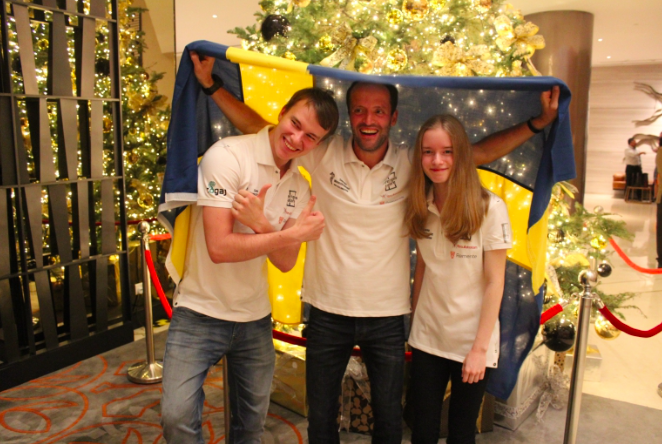
Why are you a speaker?
If the answer that popped into your head was not: “Because I want to change the world”, then you are in the wrong profession.
Yes, I can think of a million different reasons for why people want to be speakers:
- They like to the energy that comes from speaking to a lot of people
- They like the buzz that comes from standing on stage
- They like the money that it pays
- They are passionate about a specific subject
- … and so on.
But if you are not speaking to change the world you are approaching this job from the wrong side.
Tonight I met a person who is a perfect example of a speaker who is speaking to change the world.
Idriz Zogaj is on a mission: to spread the power of training your brain to more people around the world.
He is the Head Coach of the Swedish National Team of Memory. Idriz was in Singapore with his team to compete, with great success, in the World Championships of Memory here in Singapore. (Sweden got 3 Gold medals, including memorising 2860 numbers in 60 minutes, memorising 527 abstract pictures in 15 minutes – and the new World Record of memorising 520 numbers in five minutes (!).)
As a coach of the Swedish National Memory team, and as an author, app-developer – and speaker – Idriz is working non-stop to get society to understand the vast potential that lies in us becoming better at understanding the power of our minds.
As a speaker he goes to companies, governments, and schools and talks about both how we can become better at remembering things, but also about why it is so important that we do.
His dream, or I should say his goal, is to make memory training a everyday sport, just like jogging.
He truly believes that if we became more aware of what our minds can do our world would become better. And when he speaks you can feel it. And when you can feel the authentic urge to change the world, you get followers. You win the audience over.
Idriz TedX-talk is one of the most watch TedX-talks out there, with more than 5 million (!) views.
Being a great speaker is not about speaking techniques, rhetoric or “speaking skills” – it is about one person standing on a stage speaking about something that person thinks is so important because if more people understood it it would change the world for the better.
Yes, speaking techniques, rhetoric or “speaking skills” are important in getting the message across in an effective way – but they are nothing compared to the power of a speaker communicating what he or she thinks is a world-changing message.
The next time you go up on stage ask yourself: Why am I doing this speech? How is this going to change the world for the better?
If you can not answer that questions honestly, perhaps you should give another speech.
I get inspired by speakers like Idriz.
Not as a speaker, but as a human who bought into his message. (Just look at that big grin on my face as I a received the actual deck of cards used in the World Championships by one of the Swedish team members who used that deck in World Championships. I am now using that deck, and Idriz books, to play with my son and to help develop our memory. Message received. Idriz dream spread to one more family.)


